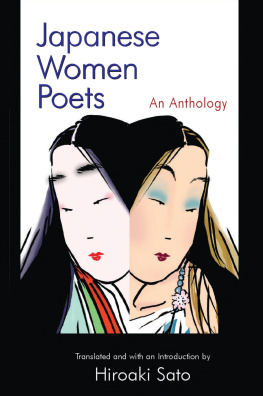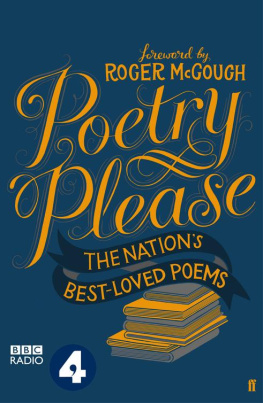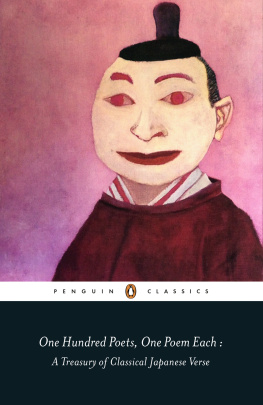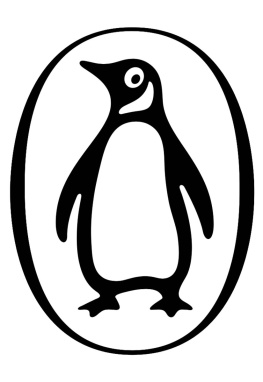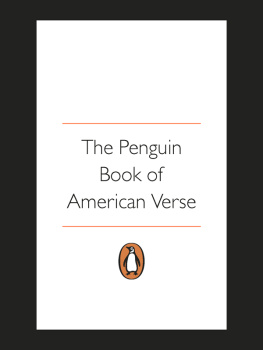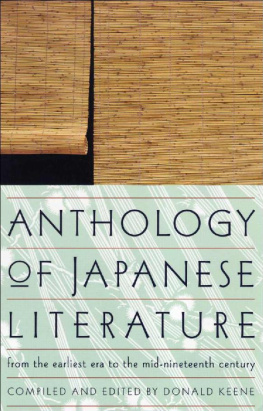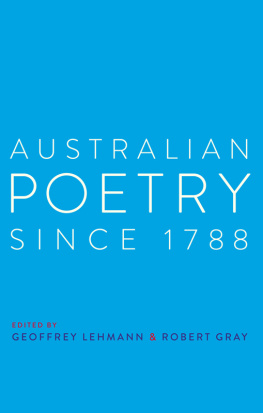The Penguin Book of Japanese Verse
Translated and with introductions by
Geoffrey Bownas and Anthony Thwaite
REVISED EDITION
PENGUIN BOOKS
PENGUIN CLASSICS Published by the Penguin Group Penguin Books Ltd, 80 Strand, London WC2R 0RL , England Penguin Group (USA) Inc., 375 Hudson Street, New York, New York 10014, USA Penguin Group (Canada), 90 Eglinton Avenue East, Suite 700, Toronto, Ontario, Canada M4P 2Y3
(a division of Pearson Penguin Canada Inc.) Penguin Ireland, 25 St Stephens Green, Dublin 2, Ireland
(a division of Penguin Books Ltd) Penguin Group (Australia), 250 Camberwell Road, Camberwell, Victoria 3124, Australia
(a division of Pearson Australia Group Pty Ltd) Penguin Books India Pvt Ltd, 11 Community Centre, Panchsheel Park, New Delhi 110 017, India Penguin Group (NZ), 67 Apollo Drive, Rosedale, North Shore 0632, New Zealand
(a division of Pearson New Zealand Ltd) Penguin Books (South Africa) (Pty) Ltd, 24 Sturdee Avenue, Rosebank, Johannesburg 2196, South Africa Penguin Books Ltd, Registered Offices: 80 Strand, London WC2R 0RL , England www.penguin.com First published 1964 Published in Penguin Books 1964, 1998 This edition with revisions first published in Penguin Classics 2009 Translation and introduction copyright Geoffrey Bownas and Anthony Thwaite, 1964, 1998, 2009 All rights reserved The moral right of the translators has been asserted Except in the United States of America, this book is sold subject to the condition that it shall not, by way of trade or otherwise, be lent, re-sold, hired out, or otherwise circulated without the publishers prior consent in any form of binding or cover other than that in which it is published and without a similar condition including this condition being imposed on the subsequent purchaser ISBN: 978-0-14-193189-0
THE PENGUIN BOOK OF JAPANESE VERSE
Professor GEOFFREY BOWNAS was born in 1923; he read Greats and Chinese at Oxford and in 19524 studied with Professor Kaizuka Shigeki in Kyoto University.He established Oxfords Department of Japanese Studies in 1954, then became Sheffield Universitys Founding Professor of JapaneseStudies in 1966, pioneering the combination of the study of Japanese with the social sciences. His publications include
Japanese Rainmaking and Other Folk Practices (1963, 2004),
New Writing in Japan, ed. with Mishima Yukio (1972),
Doing Business with the Japanese, with David Powers and Christopher Hood (2003), and
Japanese Journeys, Writings and Recollections of a half century of direct involvement with Japan (2005). He continues to be actively involved in the worlds of language teaching and translation as Vice-President of the CharteredInstitute of Linguists, and in fostering Anglo-Japanese relations. For these activities he was awarded Japans Order of theSacred Treasure in 1999 and the CBE in 2003. He loves cricket and a good claret.
ANTHONY THWAITE was born in 1930. After leaving Oxford in 1955 he went to Tokyo University where he taught English Literature until 1957.He has frequently revisited Japan, holding a Japan Foundation Fellowship in 19856, taking up a travelling scholarship atthe invitation of the novelist End Shsaku in 1989 and going to Japan on various lecture tours over the years, most recentlyin 2005. He has taught in universities in Britain, the USA, Libya and elsewhere; was literary editor of the Listener and then the New Statesman, and co-editor of Encounter, 197385. He has published seventeen books of poems, most recently Collected Poems (2007), holds honorary doctorates from the Universities of Hull and East Anglia, and was awarded an OBE for services to poetryin 1990. He is married to the biographer Ann Thwaite and has lived in south Norfolk for thirty-five years.
Introduction
It has been said that Japan is the only country in the world where the family of the head of state is regularly required towrite poetry.
Introduction
It has been said that Japan is the only country in the world where the family of the head of state is regularly required towrite poetry.
The Emperors long-established poetry prize attracts thousands of entries each New Year. Only in the twentiethcentury did fiction replace lyric poetry as the most highly esteemed of literary forms. Most Japanese can and many do compose traditional poems that, if no more, are at least technically correct. The old forms (the classical thirty-one-syllabletanka or waka and the seventeenth-century seventeen-syllable haiku) still attract many devoted practitioners, who are often members of local poetry clubs, publishing their own magazines. Newspapersrun regular tanka columns. It is true that nowadays traditional modes may be observed mechanically and with little original feeling: at the same timethere is the assumption that anyone can write poetry, and the formulaic nature of tanka and haiku means that there is a ready-made structure in which the poet may fit the words.
In the old game of poem-cards, once a regularpart of a familys New Year festivities, but nowadays played only rarely, someone read the first half of a poem from a thirteenth-centuryanthology, A Hundred Verses of a Hundred Poets (), and, in this Oriental version of Snap, from the hundred cards containing the second halves of the poems spread on the flooror on the table, the players chose the appropriate one. The clichs of everyday speech, and many proverbial sayings, can stillbe traced to famous ancient poems. Traditional poetry has permeated the cultural scene and the Japanese sensibility, and continuesto be a unifying force. But this is true only of the traditional forms. Faced with shintaishi (New-Style Poetry a vague but comprehensive term that covers the multitude of twentieth-century and more recent experiments),many contemporary Japanese will puzzle away at meanings and admit ignorance or impatience. Even so, the atmosphere is morefriendly in Japan to the poet than is usual in many places.
Poets meet a show of respect which, though it may not always be based onmuch knowledge, is genial and thoughtful. This congenial, serious, devoted attitude comes from a very long and unbroken poetical history, as Geoffrey Bownas makesclear in Japanese Poetry and Japans Poets. One looks through poems written over a period of more than a thousand yearsand finds how the same themes and even the same images recur. The wild geese were watched in the seventh century as they flewnorth in the early spring, and in the twentieth century (p. ): Undergraduates, By and large shabby: Wild geese flying off. Any important event in life may stir the Japanese poet, but above all it is nature that has been the chief inspirer.
The Japanesein general have the notion that man is not only part of nature but that the two are one and this even now, when the vastmajority of the population live in urban places, including huge conurbations. Much of Japan is still mountainous, wild, unsettleable.The unmelted snow in spring, the cherry-blossom; summer fireflies or morning glory; autumns harvest moon, its red maple leavesand the first chill winds; the hailstorms and withered fields of winter all these have been the inspiration of Japanesepoetry, and they can still be found today, however startlingly readjusted. Sense of place is also central to Japanese poetry, as it is to Japanese culture in general. Shint along with Buddhism has always been profoundly attached to particular settings: the mountains, rivers, bays and forests of the island nation.From early times the poets and chroniclers (often the same people) celebrated the holiness and power of certain sites andshrines. Over the ages, the dominant characteristic of much Japanese poetry has been its gentle melancholy, its sense of


